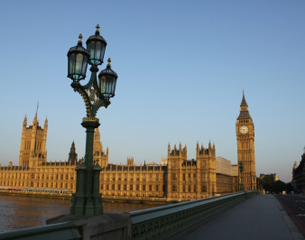The House of Lords has rejected government plans to scrap the triple lock on state pension for this year.
In a debate on this legislation, peers backed an amendment put down by former pensions minister Ros Altmann to restore the link with the state pension and earnings.
A total of 220 votes were in favour of this amendment, and 178 against. As a result this legislation will now go back to the House of Commons for another vote.
Altmann has argued that the decision to abandon the triple lock for one year broke manifesto promises from all parties, and would leave the poorest pensioners struggling with rising fuel and food bills.
Under this year’s ‘double lock’ the state pension had been due to rise by 3.1 per cent in April, based on September’s inflation figures. However in his budget last week Rishi Sunak said that inflation was set to average at 4 per cent over the coming years.
The decision to break the triple lock followed concerns that a rise in average earnings, following distortions caused by the Covid furlough scheme, would see the state pension rise by 8 per cent.
However Altmann has argued that there is scope to restore the link to earnings but adjust this figure to take into account distortions caused by the Covid pandemic, and that MPs in the Commons were not given this information when they were previously asked to vote on abandoning the triple lock.
Altmann says: “The Government is able to adjust the earnings data to account for the impact of the pandemic measures.
“This means pensioners will be better protected, as they were promised, and it is a matter of principle and trust. Pensioners are not a piggy bank for Chancellors to raid when money is tight. They are not a cash machine that the Treasury can take money from when they want to spend on other priorities.
“Pensioners deserve better. They are not all well off. We are already in a cost of living crisis, and a 3.1 per cent rise, as proposed by this bill if it had not been amended, is simply too low to protect pensioners as they were promised.”
LCP partner Steve Webb – a former Liberal Demoncrat pension minister – pointed out that this amendment had received cross-party support. However he said he expected the government to overturn the Lord’s ruling when the bill returned to the House of Commons.
He says: “Even though no government likes being defeated in the House of Lords, sometimes they will consider a concession in order to get their legislation through.
“But on an issue like this, there seems no prospect of a government concession when MPs are asked to consider the issue again. An alternative measure of earnings growth could lead to a multi-billion pound bill which could cause the Chancellor to re-write his Budget.
“By convention, the House of Commons has supremacy when it comes to financial matters and the Lords will come under great pressure to back down if the Commons simply vote down today’s amendment. The Government seems certain to use its comfortable majority in the Commons to overturn this defeat in the House of Lords. But it is a sign that any attempt to drop the triple lock for more than one year could meet some stiff resistance”.
Aegon pensions director Steven Cameron adds: “Most would agree maintaining the state pension triple lock in its unadjusted form would fail the test of intergenerational fairness, granting pensioners an unrealistic increase of over 8 per cent resulting from distortions in earnings growth figures during the pandemic.
But during a period of economic volatility and inflation expected to average 4 per cent over the coming year, it’s becoming increasingly clear that the government may have been too hasty to pull the trigger on the triple lock entirely.
“With the earnings distortions evident over the spring and early summer, we alongside many pensions experts offered suggestions for a fairer approach, allowing the government to keep its manifesto commitment of maintaining the spirit of the triple lock while ensuring pensioners aren’t left out in the cold. These include smoothing out increases in earnings over a two or three year period or basing the increase on an earnings growth figure calculated by the official statisticians with the pandemic distortions stripped out.
“While 8.3 per cent continues to look extremely generous, 3.1 per cent is now looking harsh against the broad acceptance we’ll see sharp winter rises in the cost of living as well as in heating costs which disproportionately affect pensioners. The vote on the triple lock will now go back to the government where MPs may now be persuaded to look again at a fairer middle ground.”





